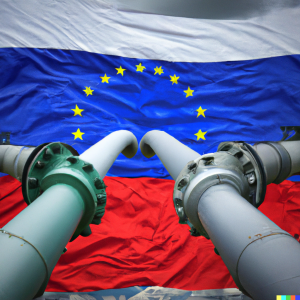-
Gazprom’s gas business diminished two years on from Russian invasion of Ukraine, with company reliant on oil business
Date posted:
-
-
-
Post Author
Patrick LaveryCombustion Industry News Editor
-
-

An article in the Financial Times has looked at the fortunes of Gazprom following the Russian invasion of Ukraine in February 2022.
Three main revenue streams are examined – the export of natural gas, the domestic sale of natural gas, and its oil business through its subsidiary Gazprom Neft. On the domestic gas side, business remains steady, although prices are regulated (to be lower than the export price), such that there is not much room to increase revenues.
Pipeline exports of natural gas have fallen hugely since the September 2022 Nord Stream explosions, and while exports to Turkey, China and other more minor customers have increased, this has only made up around 10% of the lost European business. While Russian LNG exports are “gradually” increasing as a whole, Gazprom lacks the infrastructure to push its product in that direction. The company would like to increase pipeline exports to China, but there is yet to be an agreement on the planned 3,550km “Power of Siberia 2” project, which would increase export capacity by something like 50 billion cubic metres per year (around 22% of the lost European business).
Overall, both revenue and profit before taxes – which rose for the first 18 months after the invasion of Ukraine – are down significantly, with Gazprom’s oil business providing 92% of net income in the first half of 2023. Profit is now at levels more like the years between 2016 and 2020, which themselves were substantially lower than during the period 2007-2015. This leaves Gazprom in a state that is “not great, not terrible”, according to Sergey Vakulenko, a former head of strategy at Gazprom Neft, who also pointed out that oil is the “entire layer” of cake for Gazprom now, not “just the cherry”.
Russian leader Vladimir Putin had some curious remarks on the country’s energy sector recently, telling state television channel Rossiya 1 that although Russia profits less from energy exports now, this was not a problem, as “Maybe it was more fun [previously], but on the other hand, the less we depend on energy, the better, because the non-energy part of our economy is growing.”
